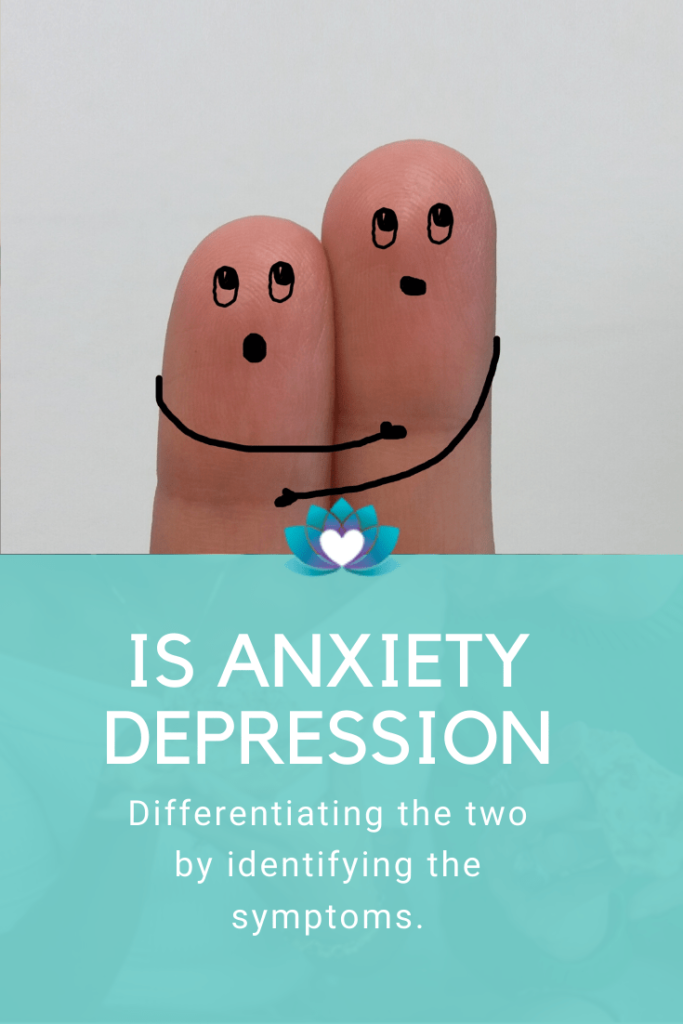Is anxiety depression?
Anxiety and depression do have a similar biological basis. Among other things, both affect nerve cell function, such as lower serotonin levels and dopamine and epinephrine levels in the brain. There are indeed biological similarities between these two different states of being. However, they are generally experienced differently on a conscious level. In addition, they can be shared simultaneously or sequentially.
Another possibility is that one is the cause of the other.
Psychological Symptoms of Depression and Anxiety
Symptoms are the most important way to tell them apart since both have distinctive psychological characteristics.
Anxiety symptoms include:
- Excessive worrying.
- Racing thoughts.
- Feelings of impending doom.
- Fear and anticipation of danger.
- Even death from some unavoidable circumstance.
Depression symptoms include hopelessness, worthlessness, sadness, apathy, and suicidal thoughts.
Anxiety is feeling stuck in a state of “flight,” which can happen when you’re anticipating something that hasn’t happened yet. With depression, you may experience it from past experiences, current situations, or from other factors that are all currently affecting your mind, body, or well-being.
Physical Symptoms of Depression and Anxiety
Increased arousal is one way to describe how anxiety makes you feel. Physical symptoms can include tension in the body, gastrointestinal distress, dizziness, increased heart rate, increased blood pressure, shortness of breath, and inability to sleep or concentrate.
Depression is usually physically described as changes from normal baselines such as appetite, energy, movement, sleep, focus, and memory. Both depression and anxiety have mental and physical outcomes. Thus both can also be somewhat improved by both psychological and physical changes.
If you’re feeling anxious, think about cutting back on or eliminating your caffeine intake, increasing your physical activity level, and getting enough rest. Since hormones such as dopamine and serotonin have been shown to directly correlate with moods. Improving these levels with physical adjustments can be helpful.
Serotonin is a neurotransmitter that regulates mood and decreases anxiety. Decreased levels of serotonin have been linked to both depression and anxiety. While reduced Dopamine levels influence a person’s energy levels, attention, movement, and more which can contribute to anxiety symptoms if left imbalanced. Taking good care of yourself and making sure to get enough rest does help aid dopamine and serotonin levels.
Making Changes in Real-time
Psychological changes you can make to help with anxiety include meditation, art for relaxation, and the practice of grounding. Grounding helps you to realign your thoughts in a moment of anxiety to something other than what you are thinking about that is causing you to be anxious. Altering your thoughts by finding a physical experience to focus on instead is very effective for panic attacks and bouts of anxiety.
One method of grounding is the 5-4-3-2-1 method to find five things you can see. Next, find four things you can feel. Then look around and find three things you can hear. Then find two things you can smell and one thing you can taste. By the time you’ve accomplished the list of things to see, your mind has become distracted from what was concerning you.
Ultimately if you aren’t sure if you are experiencing anxiety and/or depression, then seeking help from a qualified counsellor or medical doctor can be beneficial. It is possible to experience both. Many times, by treating the underlying problems and developing new skills, one can overcome each issue.
If you want help with depression or anxiety, contact us and speak with one of our counsellors today!

